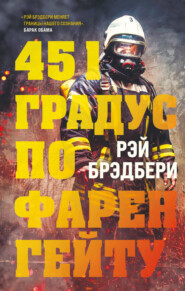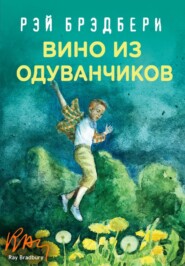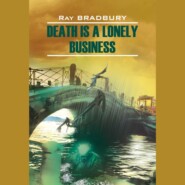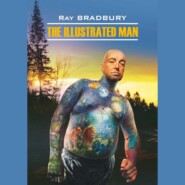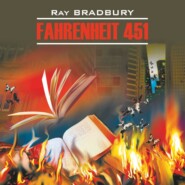По всем вопросам обращайтесь на: info@litportal.ru
(©) 2003-2024.
✖
I Sing the Body Electric
Автор
Год написания книги
2018
Настройки чтения
Размер шрифта
Высота строк
Поля
“And what about Py? When we come into his strata of existence. Will he see us as humans, immediately, and won’t that be a shock to him? Won’t it be dangerous?”
“He’s awfully young. Things haven’t got too set for him. There’ll be a slight shock, but your odors will be the same, and your voices will have the same timber and pitch and you’ll be just as warm and loving, which is most important of all. You’ll get on with him well.”
Horn scratched his head slowly. “This seems such a long way around to where we want to go.” He sighed. “I wish we could have another kid and forget all about this one.”
“This baby is the one that counts. I dare say Polly here wouldn’t want any other, would you, Polly?”
“This baby, this baby,” said Polly.
Wolcott gave Peter Horn a meaningful look. Horn interpreted it correctly. This baby or no more Polly ever again. This baby or Polly would be in a quiet room somewhere staring into space for the rest of her life.
They moved toward the machine together. “I guess I can stand it, if she can,” said Horn, taking her hand. “I’ve worked hard for a good many years now, it might be fun retiring and being an abstract for a change.”
“I envy you the journey, to be honest with you,” said Wolcott, making adjustments on the large dark machine. “I don’t mind telling you that as a result of your being ‘over there’ you may very well write a volume of philosophy that will set Dewey, Bergson, Hegel, or any of the others on their ears. I might ‘come over’ to visit you one day.”
“You’ll be welcome. What do we need for the trip?”
“Nothing. Just lie on these tables and be still.”
A humming filled the room. A sound of power and energy and warmth.
They lay on the tables, holding hands, Polly and Peter Horn. A double black hood came down over them. They were both in darkness. From somewhere far off in the hospital, a voice-clock sang, “Tick tock, seven o’clock. Tick tock, seven o’clock…” fading away in a little soft gong.
The low humming grew louder. The machine glittered with hidden, shifting, compressed power.
“Is there any danger?” cried Peter Horn.
“None!”
The power screamed. The very atoms of the room divided against each other, into alien and enemy camps. The two sides fought for supremacy. Horn gaped his mouth to shout. His insides became pyramidal, oblong with terrific electric seizures. He felt a pulling, sucking, demanding power claw at his body. The power yearned and nuzzled and pressed through the room. The dimensions of the black hood over his torso were stretched, pulled into wild planes of incomprehension. Sweat, pouring down his face, was not sweat, but a pure dimensional essence! His limbs were wrenched, flung, jabbed, suddenly caught. He began to melt like running wax.
A clicking sliding noise.
Horn thought swiftly, but calmly. How will it be in the future with Polly and me and Py at home and people coming over for a cocktail party? How will it be?
Suddenly he knew how it would be and the thought of it filled him with a great awe and a sense of credulous faith and time. They would live in the same white house on the same quiet, green hill, with a high fence around it to keep out the merely curious. And Dr. Wolcott would come to visit, park his beetle in the yard below, come up the steps and at the door would be a tall slim White Rectangle to meet him with a dry martini in its snakelike hand.
And in an easy chair across the room would sit a Salt White Oblong with a copy of Nietzsche open, reading, smoking a pipe. And on the floor would be Py, running about. And there would be talk and more friends would come in and the White Oblong and the White Rectangle would laugh and joke and offer little finger sandwiches and more drinks and it would be a good evening of talk and laughter.
That’s how it would be.
Click.
The humming noise stopped.
The hood lifted from Horn.
It was all over.
They were in another dimension.
He heard Polly cry out. There was much light. Then he slipped from the table, stood blinking. Polly was running. She stooped and picked up something from the floor.
It was Peter Horn’s son. A living, pink-faced, blue-eyed boy, lying in her arms, gasping and blinking and crying.
The pyramidal shape was gone. Polly was crying with happiness.
Peter Horn walked across the room, trembling, trying to smile himself, to hold on to Polly and the child, both at the same time, and weep with them.
“Well!” said Wolcott, standing back. He did not move for a long while. He only watched the White Oblong and the slim White Rectangle holding the Blue Pyramid on the opposite side of the room. An assistant came in the door.
“Shhh,” said Wolcott, hand to his lips. “They’ll want to be alone awhile. Come along.” He took the assistant by the arm and tiptoed across the room. The White Rectangle and the White Oblong didn’t even look up when the door closed.
The Women
It was as if a light came on in a green room.
The ocean burned. A white phosphorescence stirred like a breath of steam through the autumn morning sea, rising. Bubbles rose from the throat of some hidden sea ravine.
Like lightning in the reversed green sky of the sea it was aware. It was old and beautiful. Out of the deeps it came, indolently. A shell, a wisp, a bubble, a weed, a glitter, a whisper, a gill. Suspended in its depths were brainlike trees of frosted coral, eyelike pips of yellow kelp, hairlike fluids of weed. Growing with the tides, growing with the ages, collecting and hoarding and saving unto itself identities and ancient dusts, octopus-inks and all the trivia of the sea.
Until now—it was aware.
It was a shining green intelligence, breathing in the autumn sea. Eyeless but seeing, earless but hearing, bodyless but feeling. It was of the sea. And being of the sea it was—feminine.
It in no way resembled man or woman. But it had a woman’s ways, the silken, sly, and hidden ways. It moved with a woman’s grace. It was all the evil things of vain women.
Dark waters flowed through and by and mingled with strange memory on its way to the gulf streams. In the water were carnival caps, horns, serpentine, confetti. They passed through this blossoming mass of long green hair like wind through an ancient tree. Orange peels, napkins, papers, eggshells, and burnt kindling from night fires on the beaches; all the flotsam of the gaunt high people who stalked on the lone sands of the continental islands, people from brick cities, people who shrieked in metal demons down concrete highways, gone.
It rose softly, shimmering, foaming, into cool morning airs.
The green hair rose softly, shimmering, foaming, into cool morning airs. It lay in the swell after the long time of forming through darkness.
It perceived the shore.
The man was there.
He was a sun-darkened man with strong legs and a cow body.
Each day he should have come down to the water, to bathe, to swim. But he had never moved. There was a woman on the sand with him, a woman in a black bathing suit who lay next to him talking quietly, laughing. Sometimes they held hands, sometimes they listened to a little sounding machine that they dialed and out of which music came.
The phosphorescence hung quietly in the waves. It was the end of the season. September. Things were shutting down.
Any day now he might go away and never return.
Today he must come in the water.
They lay on the sand with the heat in them. The radio played softly and the woman in the black bathing suit stirred fitfully, eyes closed.






